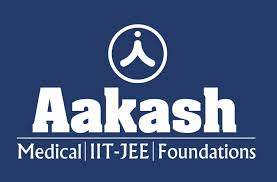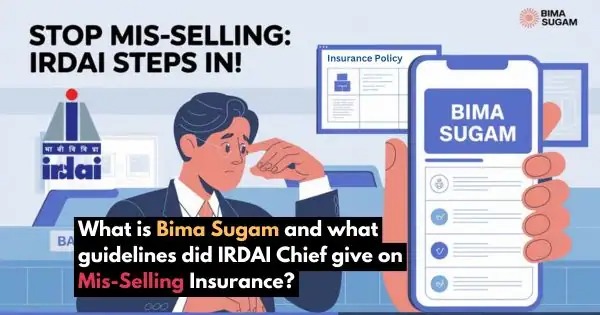J.S. Khehar, J.@mdashAt the outset we would like to record that the applicant-appellant Sandeep does not wish to contest the impugned judgment rendered in Sessions Case No. 56 of 2000, which was decided by the Additional Sessions Judge, Bhiwani, on 23.5.2000. Learned counsel for the accused/appellant states that he only desires to challenge the order of the Additional Sessions Judge, Bhiwani dated 23.5.2006 wherein the accused/appellant has been sentenced for the charges proved against him. The solitary contention of the learned counsel for the applicant-appellant Sandeep is to the effect that he should be given the benefit of juvenility under the provisions of the Juvenile Justice (Care and Protection of Children) Act, 2000 (hereinafter referred to as the Juvenile Justice Act), as on the date of occurrence the accused-appellant was a juvenile.
2. In so far as the aforesaid claim of the applicant-appellant Sandeep is concerned, it is based on the fact that the occurrence under reference took place on 17.11.1999, as also the fact, that the applicant-appellant Sandeep on the aforesaid date was more than 16 years old but less than 18 years. It would be pertinent to mention that there is no dispute between the rival parties that the date of birth of the accused/appellant Sandeep is 16.3.1982.
3. At the time of occurrence the benefit of juvenility was available to a child who was less that 16 years of age on the date of occurrence. The provisions of the Juvenile Act were amended on 1.4.2001 wherein the age of juvenility was increased from 16 years to 18 years. On the basis of the fact that the applicant-appellant Sandeep was less than 18 years on the date of occurrence i.e. 17.11.1999, a plea was raised before the trial Court to grant the applicant-appellant Sandeep the benefit of juvenility. The trial Court by an order dated 21.5.2003, accepted the aforesaid claim raised by the applicant-appellant Sandeep and granted him the benefit of juvenility.
4. The determination rendered by the trial Court was sought to be challenged by the complainant before this Court by filing Criminal Revision No. 1657 of 2003. The challenge raised by the complainant however, failed inasmuch as, Criminal Revision No. 1657 of 2003, was dismissed on 12.8.2003. Dissatisfied by the order passed by the order passed by the trial Court dated 21.5.2003, as also the order passed by this Court on 12.8.2003, the complainant raised the same challenge before the Apex Court. The Supreme Court accepted the claim of the complainant by relying on a judgment rendered by it in
5. After the decision of the Supreme Court in the case of the applicant- appellant Sandeep, the Juvenile Act was again amended on 22.8.2006 wherein the benefit was extended to all such children who were below the age of 18 years "on the date of occurrence." It is now the claim of the applicant-appellant Sandeep that the applicant-appellant should be given the benefit of juvenility on the basis of the amendment in the Juvenile Act carried out through the notification dated 22.8.2006.
6. In response to the contention advanced at the hands of the applicant- appellant Sandeep, it is the contention of the learned counsel for the State, as well as, of the complainant that the issue in respect of juvenility of the applicant-appellant Sandeep must be treated to have attained finality with order passed by the Apex Court in the case of the applicant-appellant Sandeep himself and that this Court has no jurisdiction to re-open the issue once the issue of juvenility of the applicant-appellant Sandeep has been decided by the Supreme Court.
7. We have considered the contention advanced by the rival parties. In so far as the objection raised at the hands of the State, as well as, the complainant is concerned, we are of the view, that the determination rendered by the Supreme Court in Partap Singh''s case (supra) was at a time when the Juvenile Act had been amended on the basis of a notification dated 1.4.2001. It is the aforesaid notification/amendment which was subject matter of consideration at the hands of the Supreme Court when the claim of juvenility of the applicant- appellant Sandeep was decided by the Apex Court. The effect of the amendment dated 22.8.2006, was not taken into consideration by the Apex Court. The Apex Court could not have taken into consideration the amendment carried out on 22.8.2006 as the said amendment had not come into force when the Supreme Court disposed of the controversy pertaining to the applicant-appellant Sandeep on 28.3.2005. Since the notification dated 22.8.2006 is the basis of the claim raised by the applicant-appellant Sandeep before this Court, (while canvassing the claim of the said appellant on the issue of juvenility) we are satisfied, that the order passed by the Apex Court on 28.3.2005, cannot stand in the way of this Court to adjudicate upon the claim of the applicant-appellant Sandeep on the basis of the amendment dated 22.8.2006.
8. In so far as the notification dated 22.8.2006 is concerned, the same inter alia, amended Section 20 of the Juvenile Justice Act, and bestowed the benefit of juvenility to all those children who are below the age of 18 years (and whose claims are pending consideration either before a trial Court or before an appellate Court) on the date of occurrence. It is not a matter of dispute that the applicant appellant Sandeep was less that 18 years of age on the date of occurrence i.e. 17.11.1999. It is conceded at the hands of the State, as well as, the complainant that if the benefit of the amendment carried out on 22.8.2006 is to be given effect, the applicant-appellant would essentially fall within the category of juvenile under the provisions of the Juvenile Justice Act.
9. Since it is not contested at the hands of the rival parties that by virtue of the amendment dated 22.8.2006 the applicant-appellant Sandeep has to be given the benefit of juvenility, we are of the view, that the limited aspect of the matter canvassed on behalf of the applicant-appellant Sandeep deserves to be accepted. In accepting the aforesaid conclusion we have placed reliance on the latest judgment rendered by the Apex Court in Balu @ Bakthvatchalu v. State of Tamilnadu, 2008 (2) RCR (Crl) 164 : 2008 (2) RAJ 178 (SC) (Criminal Appeal No. 295 of 2008, decided on 12.2.2008), where it was held as under:-
"We are, therefore, of the view that in this case the trial judge should be directed to hold the enquiry in regard to the age of the appellant on the date of commission of the offence and in the event it is found that the appellant was a juvenile within the meaning of the provisions of the said Act, he should proceed with the matter in accordance with law. It is directed accordingly."
It would be pertinent to mention that the appellant before the Supreme Court was involved with proceedings arising out of an occurrence which had been taken place on 20.4.1991 i.e. well before the notifications dated 1.4.2001 and 22.8.2006. As per the determination in Balu @ Bakhvatchalu''s case (supra) juvenility has to be determination on the basis of the date when the crime was committed. We, therefore, hereby accept the contention advanced by the learned counsel for the applicant-appellant Sandeep that he was a juvenile on the date of the occurrence and is entitled to claim the protection envisaged under the Juvenile Justice Act. We hereby accordingly set aside the order of sentence dated 23.5.2006 passed by the Additional Sessions Judge, Bhiwani.
10. On the issue of sentence, the applicant-appellant Sandeep is relegated to the Juvenile Justice Board, Bhiwani. The applicant-appellant Sandeep shall appear before the Juvenile Justice Board, Bhiwani on 26.5.2008.
11. In view of the statement made by the learned counsel for the applicant- appellant Sandeep, the impugned judgment of the trial Court dated 23.5.2006 rendered by the Additional Sessions Judge, Bhiwani, is upheld.
12. As of now, the applicant-appellant is directed to be released on bail on account of the fact that he has already undergone the maximum period of sentence, which can be awarded to him under the Juvenile Justice (Care and Protection of Children) Act, 2000.
13. A copy of this order shall be communicated by the Registry of this Court to the Juvenile Justice Board, Bhiwani, forthwith.

